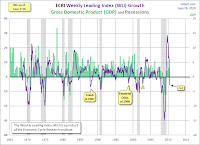Trust Bank Singapore, New Digital Bank Freebies!


Below is summary of key points extracted from a recent US newspaper column posted by an Expert Stock Market Timer:
George Soros: who made his billions by being ahead of important trend changes in both directions for many decades, is particularly concerned about the ‘austerity’ measures being enacted by governments around the world, including in the U.S., to tackle record budget deficits. “We have just entered Act II . . . . The collapse of the financial system as we know it is real and the crisis is far from over . . . 1930’s style budget deficits are essential as counter-cyclical policies [to pull economies out of recession], yet many governments are now moving to reduce their budget deficits under pressure from financial markets. This is liable to push the global economy into a double-dip.” It is “inevitable” that Europe will be back in recession by next year.
Paul Krugman: winner of the Nobel Prize for Economics in 2008, who provided a timely warning in advance of the 2008-2009 recession, warned of a next recession in a New York Times column last week. “Suddenly creating jobs is out, condemning deficits is in. Many economists, myself included, regard this turn to austerity as a huge mistake. It raises memories of 1937, when FDR’s premature attempt to balance the budget plunged the recovering economy back into severe recession. . . . . Economic policy around the world has taken a major wrong turn and the odds of a prolonged economic slump are rising by the day.”
Federal Reserve Chairman Ben Bernanke: while still forecasting the U.S. economy will continue to grow “at a moderate pace”, said for the first time last week that he “does not rule out the possibility of a double-dip recession.”
Warren Buffett says a “terrible problem” lies just ahead for municipal bonds, that with plunged real estate values and high unemployment, too many cities and towns are just not able to collect enough in taxes and fees to handle expenditures and also make payments on their bonds.
Meredith Whitney: a prominent bank analyst at Oppenheimer in 2007, became famous with her accurate bearish call on Citigroup in October, 2007, and even before the problems that befell Merrill Lynch and Lehman Brothers was quoted as saying, “It feels like I’m in the epicenter of biggest financial crisis in history.” “I have the strongest conviction that there’s going to be a double-dip in housing.” “The issue of the municipal bond market is one that’s very scary to me because you have so many states with under-funded budgets – underfunded by two and a half times the level they were underfunded after the dot-com bubble burst. . . . People worry about the federal budget deficit, but the state budgets are more urgent since 49 states are constitutionally required to have balanced budgets.” In other words, while the federal government can simply print more money and take on even more debt by issuing more bonds, states must cut jobs and programs, and raise taxes in order to balance their budgets, austerity measures unfriendly to the economy.
Wow! Now here's evidence of possible risk of double-dip: Look at the Chart, ECRI WLI Growth had gone negative! Did you notice DOW Chart has similar Chart Pattern as the ECRI WLI? : a rebound in Mar 2009 and a drop in April 2010?
Wow! Crisis = Opportunity Ahead? Do you know when?

Comments